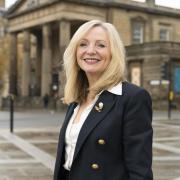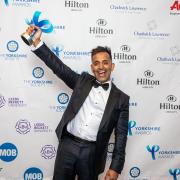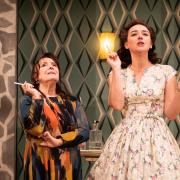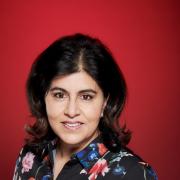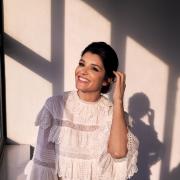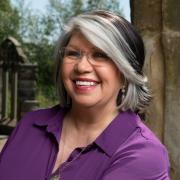Internationally acclaimed cellist Julian Lloyd Webber tells Sheena Hastings how a serious health problem has led to new opportunities

Julian Lloyd Webber describes his return to Harrogate International Festivals – this time as guest curator – as something of a homecoming.
He’s performed at the festivals a dozen times, first as part of the Young Musician series: ‘It’s one of the very first places I performed in public. I played the Royal Hall in 1970 when I was 19, in a Beethoven bicentenary concert with John Lill. Things took off from there.’
It was there that he also recorded Elgar’s Cello Concerto with the Royal Philharmonic Orchestra conducted by Yehudi Menuhin - a version considered by many to be the finest ever.
‘Harrogate has great venues and a great musical tradition. You know you’re going to get a good audience of people who follow classical music and are very warm and appreciative.’
He’s lost none of his zest for music, but a spinal problem diagnosed early in 2014 means he can only play in short bursts. But he’ll be taking a masterclass and has been involved in suggesting artists for this year’s programme, including rising star pianist Jenna Sung from South Korea.
‘I heard her at an audition, and she was outstanding, really one to watch,’ he says.
Julian and his older brother Andrew, king of the West End musical and a lord to boot, grew up in a noisy house in Kensington. Andrew was always interested in composing music, but Julian was drawn to the cello from the age of four. He says its allure has to do with ‘a quality that speaks almost like the human voice’.
There was, perhaps surprisingly, very little rivalry between the brothers: ‘I wanted to interpret the work of great composers, and he wanted to write his own music. We have done the odd thing together, but generally we just do our own thing.’
After the Royal College of Music, Julian dedicated his life to the cello, practicing for up to six hours a day. He circled the globe in concert; a fact, he admits, that probably contributed to his three divorces.
He’s now married to fellow cellist Jiaxin Cheng, who understands the strains on a performer: ‘She wouldn’t, for instance, pick a fight on the day of a concert.’
After 40 years on the road with his Stradivarius and a host of stunning collaborations with artists including Yehudi Menuhin, Stephane Grappelli, Neville Marriner, Georg Solti, Cleo Laine and Elton John, his performances are very different.
An Evening With Julian Lloyd Webber (at Harrogate Royal Hall on July 12th) now gives him the opportunity to share anecdotes while others – including his wife – play musical highlights from his career.
The idea came about a few months after he lost most of the power in his bowing arm in the middle of a festival appearance in late 2013. An MRI scan revealed a severely herniated disc that was pressing on the spinal canal and causing nerve root damage.
The risks of surgery include paralysis, voice loss and death, so Julian had to find a new way to earn a living.
He says there were ‘some very dark days’ after the diagnosis, and he describes the trauma as ‘something like a bereavement, because in a very real sense I was losing a large part of who I was’.
His beloved Strad, which he struggled to afford in his 20s, is now on the market and he’s looking forward to becoming principal of Birmingham Music Conservatoire later this month.
Developing young musicians is a role he relishes, and he continues to be evangelical about the transformative power of playing music for children.
A few years ago, he formed a charity with friends flautist James Galway and percussionist Evelyn Glennie which was granted government funding for music education in disadvantaged areas via a scheme called In Harmony.
‘We’ve done good things, but I find it unbelievable that a school can still be judged outstanding by Ofsted without music being part of the equation,’ he says. ‘We need parents and teachers to understand that children are not either academic or musical; they can be both.
‘And making music helps other kinds of study. We have seen some so-called problem children flourish academically after they’ve started to learn an instrument. Music isn’t a frill, it’s a necessity.’ w
An Evening With Julian Lloyd Webber is at 8pm on Sunday July 12th at Harrogate Royal Hall. He’s also running a masterclass at 3pm on Saturday July 11th at the Crown Hotel. For details, visit www.harrogateinternationalfestivals.com or call 01423 562303..










